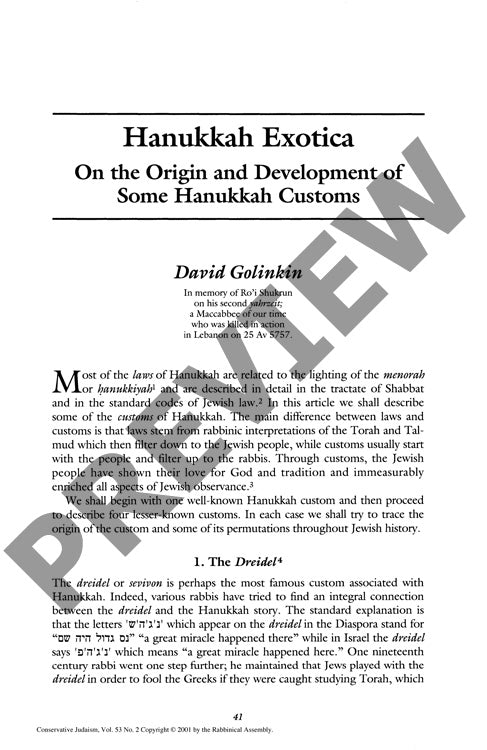Hanukkah Exotica on the Origins and Deve
Couldn't load pickup availability
Five lesser-known Hanukkah customs, from dreidel spinning to cheese-eating, reveal surprising origins that challenge popular assumptions about Jewish holiday traditions. Through analysis of rabbinic responsa, medieval manuscripts, and custom books, these practices emerge not as divinely mandated rituals but as creative cultural adaptations. The beloved dreidel game, for instance, derived from European spinning top games (totum/teetotum) - an ironic case of cultural borrowing within a holiday celebrating resistance to assimilation. Medieval German and Eastern European Jews developed sophisticated Hanukkah katovess (word games and riddles), a tradition that flourished for four centuries before vanishing. Card-playing customs, first documented in 15th-century responsa, sparked heated rabbinic debates over appropriate holiday conduct, leading some communities to restrict gambling to specific holy days. The tradition of eating cheese emerged from medieval interpretations linking Hanukkah to the story of Judith, though historical analysis reveals this connection was retrospectively constructed. Public readings of the Scroll of Antiochus varied significantly across communities and eras, demonstrating how Jewish observance evolved differently across the diaspora. This examination of historical sources reveals how Jewish communities enhanced their ritual life by adapting external influences while maintaining traditional religious frameworks.

More Information
-
Physical Description
-
Publication Information
Published 2001
ISBN
-
Publication Credits
David Golinkin

